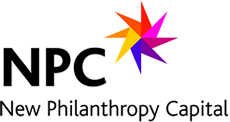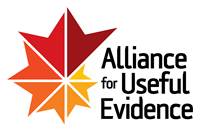Why Impact Measurement Matters: A Funder’s Perspective
Meredith Niles is an Investment Director at the venture philanthropy organisation Impetus Trust. Impetus provides charities and social enterprises in its portfolio with a package of funding, management support and specialist expertise. This is the first of two blogs by Meredith on why impact matters to funders and how to work with them to measure your organisation’s impact. A version of this first article appeared in The Fundraiser, March 2012.
It’s no secret that the competition among charities for funding has become increasingly intense. Public sector and increasingly charitable funders are demanding greater evidence of impact from the organisations they support.
Despite a clear business case for greater emphasis on impact measurement and evaluation (“M&E”), many charities, especially small and medium-sized charities with fewer resources, struggle with this area. Common questions include: “What systems should we be using?” “How much time and money should we / can we spend on this?” And in some organisations, the more fundamental question of “Why are we doing this again?” comes up time after time.
At the Impetus Trust, a venture philanthropy funder, we spend a lot of time thinking about impact. It’s a subject that is important to us for three reasons.
- First, like many other donors, our funding decisions are influenced by investee organisations’ ability to demonstrate the difference that they make. As Impetus has no endowment, we probably place more emphasis on impact than most other funders, as we ourselves must raise several million pounds each year from our own donors, a mix of grantmaking trusts, corporations and individuals.
- Our donors are particularly keen on understanding the difference their money makes. This means that Impetus must focus on measuring and communicating our own impact. Time and again, our donors tell us that a major reason they decided to support us was the knowledge that their funds would be well managed.
- Finally, we commit a substantial level of resource to helping our investees “raise their game” on impact measurement and evaluation, by making clever use of often minimal resources. This is because our primary activity is helping other charities and social enterprises to scale up their operations, and we can only demonstrate the impact of our work if we can get good quality impact data from our investees.
When assessing an application, we don’t expect the charity to have perfect evidence of their impact already. However, we do expect them to have a well-developed theory of change that makes a logically sound link between the work that they do and the results they hope to achieve. We also look for a cultural commitment to improving impact measurement and evaluation processes throughout the organisation. We want to know that the organisation isn’t interested in M&E purely to please its funders, but because it is genuinely committed to learning what about their service works and what could be improved, so that they can be as effective as possible.
Once we’ve chosen to support an organisation, we work closely with them to help them build their skills and capacity for improved impact measurement. We invest a lot of time up-front agreeing what measures are really important in understanding the social value that is being created - this usually means focusing on no more than two or three key social impact metrics on the basis of which to assess performance. We want to measure what matters.
We then work with the organisation to co-develop tools to track these. We don’t think there’s a perfect “one size fits all” tool out there, and we encourage our investees to use the tools that are most comfortable for their organisation. This might include a mix of data collected from surveys, focus groups, observed changes from a dataset collected by a third party, as well as quotes and case studies.
We also help our investees think about their current and future stakeholders and what kind of information about their service or evidence they might require. As the charity’s operations grow, it may want to be in a position to attract new funders, including through government commissions. Public bodies and their prime contractors often require very high standards of evidence, and may provide terms to which no charity should agree unless they have good reason to be confident in their ability to deliver the desired results. So we help our investees understand what would be required of them by potential future stakeholders, and then help them produce this evidence.
In our experience, organisations are often reluctant to invest in impact measurement and evaluation. Often, this is due to well-intentioned but misguided attempts to maximise the funds available for front-line work with clients. As a charity, your role is to treat a social problem: don’t you owe it to your clients to make sure that you know the solution you’re offering is safe and effective? What if through an evaluation, you learned that a simple change to what you’re doing could allow your work to have even greater impact, or reach even more people, for the same spending? Just doing “more of the same” without taking a step back and evaluating the results will never provide an opportunity for improvement.
And ultimately, improving services and resource allocation so that you can make a bigger difference with the money you have is the real reason that organisations should invest in impact measurement. By building a culture of continual assessment and improvement, combined with honest and transparent communication with your stakeholders, you’ll naturally attract more funding as well.






+44 (0)207 438 2598
[email protected]
Follow us on Twitter
Join us on LinkedIn
Join us on Facebook
Our photos on Flickr
Subscribe to our Feed